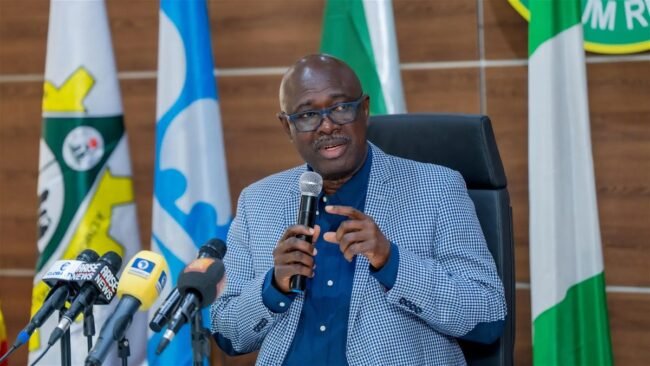The federal government announced on Tuesday that a consortium of South Korean investors will build four refineries in Nigeria with a capacity of 100,000 barrels each.
The development was disclosed by Minister of Petroleum Resources Heineken Lokpobiri at the inaugural summit organized by the Nigeria Crude Oil Refinery Owners Association in Lagos.
Mr. Lokpovili highlighted the government’s efforts to foster a favorable environment for investment in the refining sector. Although he did not name the consortium, he did say that approval had been given to welcome it.
“We are promoting the establishment of limited refineries by ensuring an open investment environment.Recently, we have launched four model refineries with a capacity of 100,000 barrels each in different locations in Nigeria. “We have approved the invitation of a Korean consortium that intends to build a facility,” he said.
The minister explained that the government is adopting a public-private partnership model to attract investment in the midstream and downstream oil and gas sectors. This strategy aims to encourage the creation of additional modular and mega-refineries.
Mr Rokpobiri expressed confidence that these initiatives will strengthen Nigeria’s energy security as the Nigerian government welcomes equity investments in both modular and new refinery projects.
He highlighted the efforts of the Nigeria Upstream Petroleum Regulatory Commission in developing domestic crude oil supply obligation guidelines aimed at ensuring transparency within the petroleum industry and ensuring access to feedstock for local refineries.
Also read: Edo Governor: INEC, BVAS deny interfering with inspection of election materials
He further added, “We will provide special concessions to local refinery owners and work with stakeholders to effectively implement the Modular Refinery Committee’s recommendations to secure feedstock for their operations.” “I am doing so,” he said.
“We are committed to the complete deregulation of the downstream sector and establish a framework to reduce the impact on economically vulnerable groups,” Lokpovili added.
The ministry is also facilitating access to duty exemptions and other incentives related to the import of refining equipment as part of its strategy to make Nigeria self-sufficient in oil production and establish it as Africa’s refining hub.
He said the Petroleum Industry Act (PIA) led to the establishment of the Ministry of Petroleum and the National Gas Infrastructure Fund, with plans to allocate a portion of the fund to support oil refining infrastructure development, as well as initiatives in the gas value chain. .
“To achieve this, we will launch a review of the PIA. Additionally, CORAN must spearhead this campaign. “We are prioritizing partnerships with international organizations, strengthening knowledge transfer in refinery operations, and investing in research and development to advance technology in this field,” he added.
Finally, Lokpobiri disclosed that to combat crude oil theft and illegal refining activities, the ministry has established an international emergency committee focused on developing indigenous solutions for refining in Nigeria.
nigeria tribune

